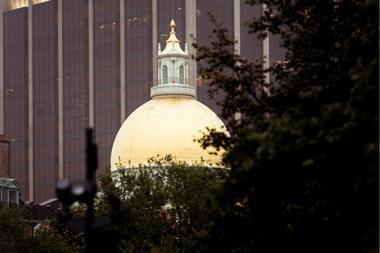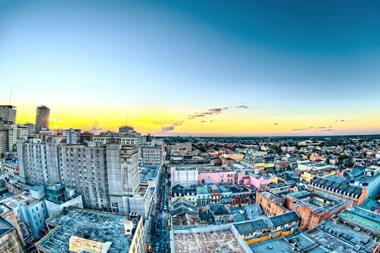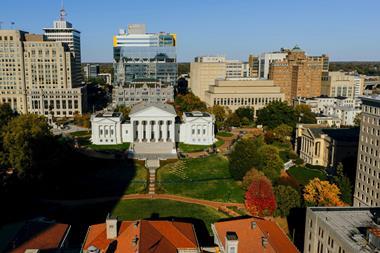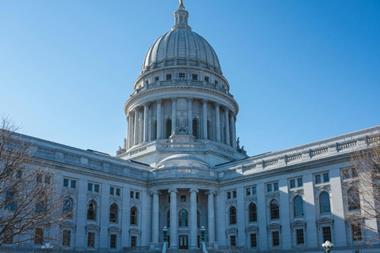NORTH AMERICA – Cap rates are continuing to fall in US commercial real estate across national markets, according to the second-quarter PwC Real Estate Investor Survey.
The combined average overall cap rate fell to 6.9%, experiencing the highest quarterly decline since 2010.
But rent growth is not increasing as quickly, causing a measure of concern amidst otherwise buoyant results.
Mitch Roschelle, national practice leader for Real Estate Advisory service at PwC, said: "Survey results quarter after quarter are showing a trend of improvement, but that is only part of a balanced story. There is also a feeling, on the part of some investors, that there should be some caution."
Investors interested in the office sector are having to contend with a disparity between cap-rate compression and rent growth expectations that make pricing challenging.
"Prices are up, cap rates are down, but rents haven't caught up yet," said Roschelle.
This is why cautious investors are questioning whether the market may be getting ahead of itself.
Some office markets, however, are seeing a better balance. Seattle and Denver are benefiting from growth in the tech sector, and Charlotte and Phoenix are recovering quickly.
In these markets, overall cap rates are declining even as rent growth expectations are positive.
In Seattle, for example, PwC found that the overall vacancy rate has dropped 250 basis points over the last 12 months.
The average market rent change rate stood at 4.1% for Q2 2013, the third highest of all the cities surveyed by PwC.
According to the survey, Denver's overall cap rate fell below 7% for the first time since 2008, reaching 6.9%.
The city is benefiting from rising investor interest as coastal markets become more expensive, according to the PwC report.
In Charlotte, North Carolina, where recovery is continuing, the average cap rate is down 3bps for Q2, but the rent change rate is up 6bps.
Market participants expect meaningful asset value increases, averaging 5.3%, tying with Houston and ranking fourth nationally.
Phoenix is another rising story. Although the pace of sales slowed this year after record-breaking activity at the end of 2012, leasing activity is on the increase.
The report also reveals that the average initial-year market rent change rate for Q2 is up 14bps, to 0.88%, the highest average since Q1 2009.
One area of concern that has arisen only since the report was compiled is the prospect of rising interest rates, Roschelle said.
Interest rates have been creeping up in anticipation of Fed action, but, thankfully for real estate markets, not in response to economic fundamentals.
And PwC does not expect that this interest rate rise will dampen enthusiasm for commercial real estate.
"If interest rates creep up and we see an increase of 100bps, it will knock some of the frothiness out of the market, but this is not a bad thing," Roschelle said. "And interest rates will still be at a 50-year low."












